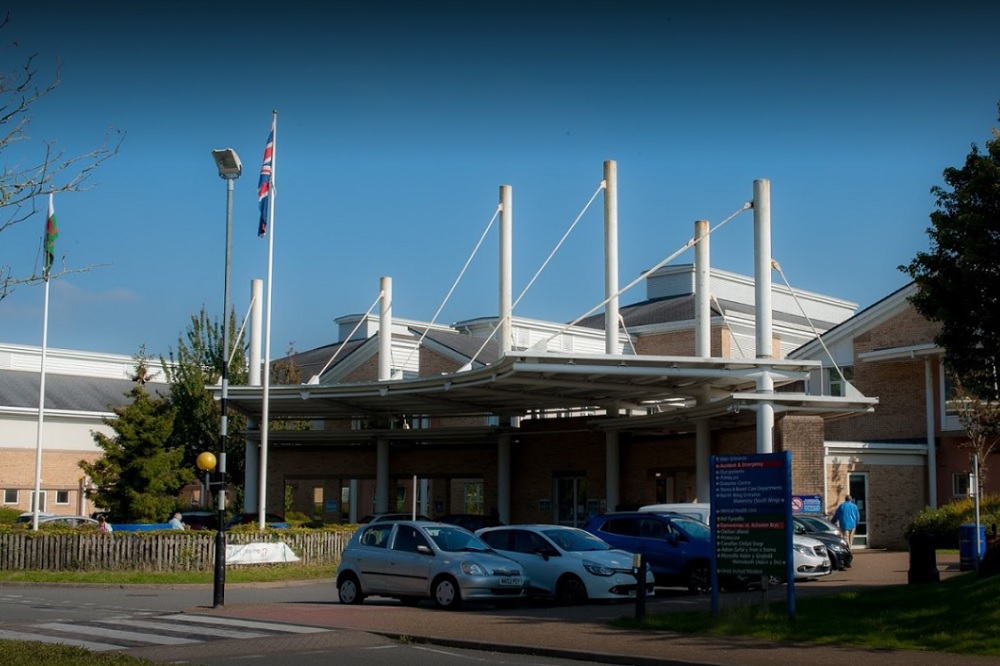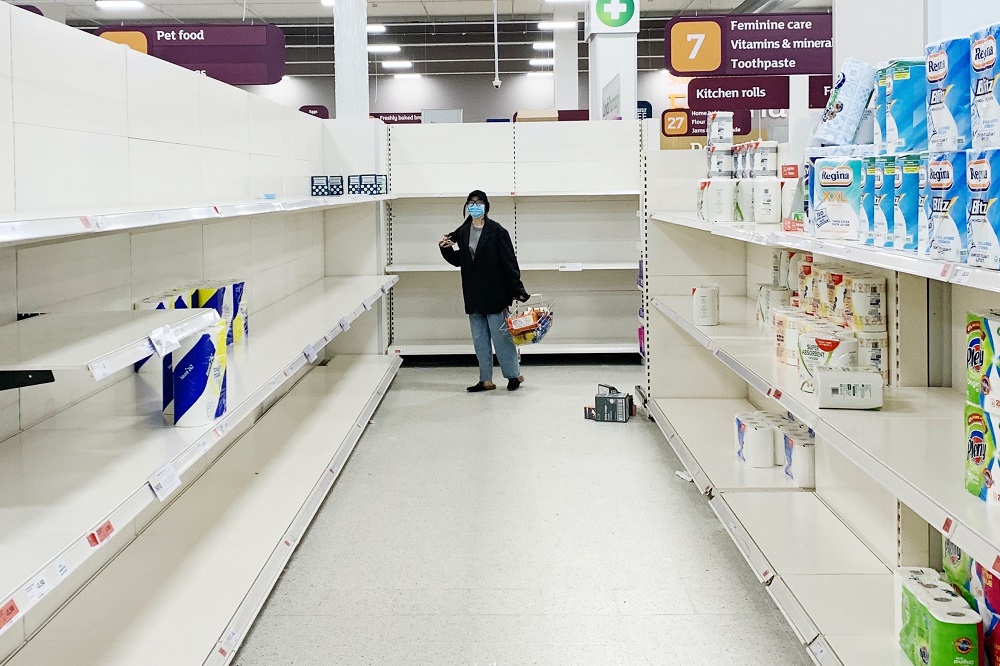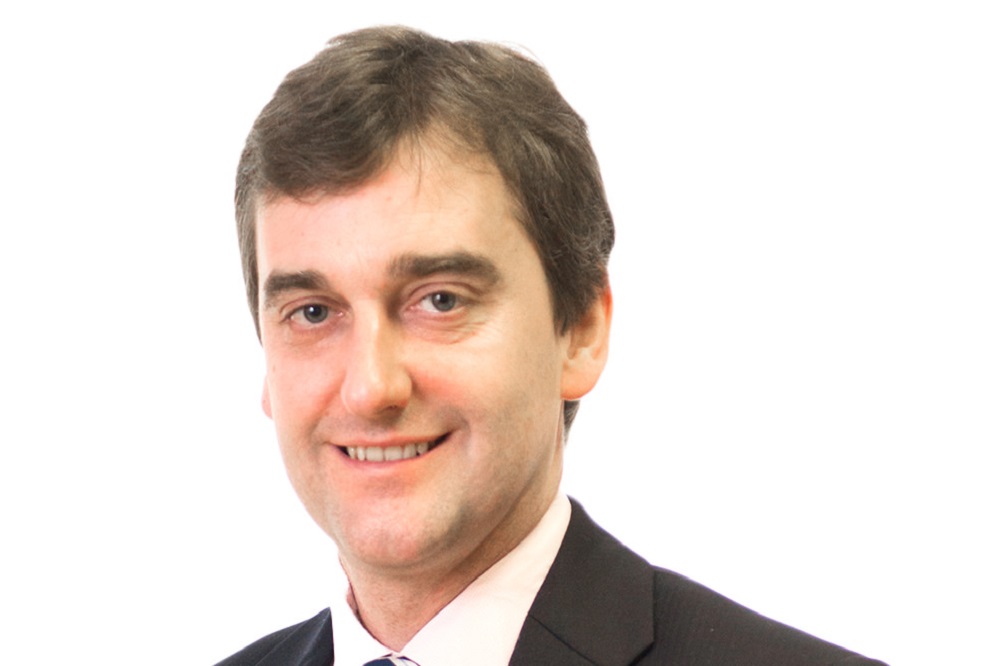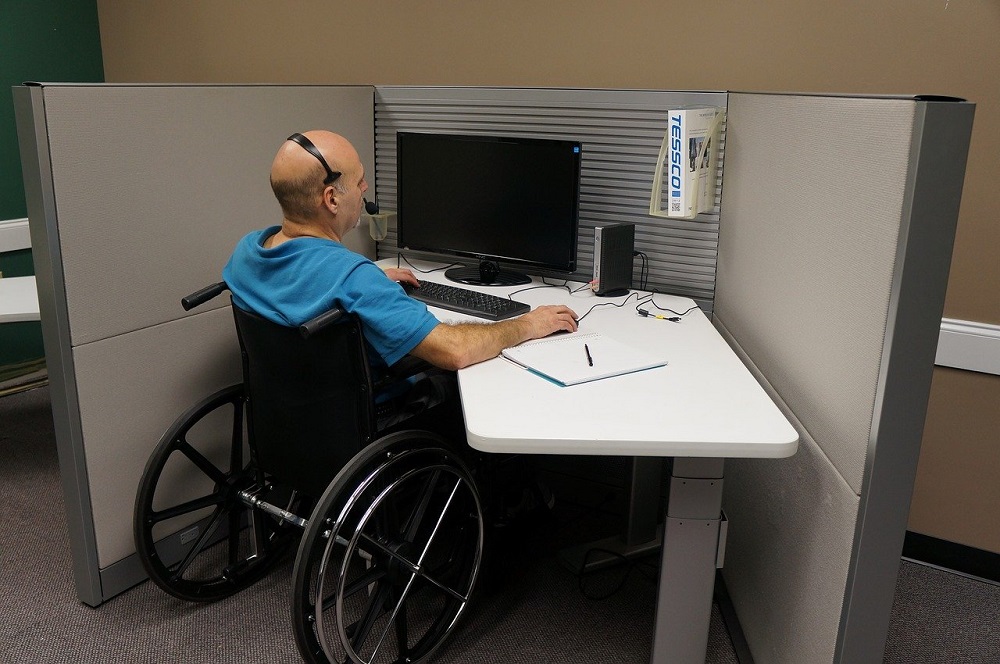Senedd roundup: Welsh hospitals treating record numbers of Covid-19 patients

Latest figures from NHS Wales have confirmed there are currently more people in hospital in Wales with Covid-19 than at any time since the start of the pandemic.
Overall, 983 beds are occupied by patients that have tested positive for Covid-19, 251 are suspected to have the virus and 295 are recovering from it.
This week’s total of 1,529 coronavirus patients across Wales is an increase of 14% from the previous week.
Close to a third of all coronavirus patients are in the Cwm Taf Morgannwg health board area, where more than 530 cases have been linked to outbreaks inside four hospitals and yesterday the health board confirmed a further 28 deaths in the last week linked to the outbreak.
In total 127 deaths have been reported at the health board’s hospitals, 56 at the Royal Glamorgan, 40 at the Princess of Wales, 25 at Prince Charles and six at Maesteg.
Yesterday NHS Wales chief executive Dr Andrew Goodall revealed a significant drop in the number of Covid-19 patients requiring intensive care treatment during the current wave of the pandemic but confirmed critical care units are busier than normal due to the number of Covid and non-Covid patients requiring treatment.
Dr Goodall told the Senedd’s health committee that during the first wave in spring it had been calculated that around 30% of patients admitted to hospital with the virus would require intensive care but at present the levels across Wales ranged from 7-12%.
According to today’s figures 68 people were being treated on invasive ventilated beds, including in critical care, the highest number since May.
A further 34 people have died with coronavirus since yesterday and 876 people have tested positive for the virus, according to the latest figures from Public Health Wales.
16 deaths were recorded from Cwm Taf Morgannwg University Health Board, six at Hywel Dda and three within Swansea Bay.
Neath Port Talbot recorded the highest number of new cases with 98, followed by Cardiff (79) Rhondda Cynon Taf (69) and Swansea 66.
The second highest number of new positive tests yesterday was 83, among people who are not resident in Wales.
Infection rates appear to be continuing to fall as the impact of the firebreak that ended on Sunday becomes clearer.
The infection rate in Merthyr remains the highest in Wales at 421 per 100,000 of the population but has declined from 741 last Wednesday.

Welsh Government regrets confusion and miscommunication over supermarket “non-essentials ban”
- Petition calling for non-essential items to be sold in supermarkets during lockdown the most-signed Senedd petition to date.
- Labour MSs accuse the Conservatives and UK media of willfully misleading the Welsh public over supermarket restrictions during the 17-day firebreak lockdown.
- Minister expresses “regret” at communication problems, but time wasn’t a luxury.
P-05-1060 “Allow supermarkets to sell ‘non-essential’ items during lockdown”
Submitted by Gareth Howell
Signatures: 67,940
High levels of engagement “a positive for democracy”, but with a serious message behind it
Chair of the Petitions Committee, Janet Finch-Saunders MS (Con, Aberconwy), said the petition received the most signatures since the public petitions system was established, with 92% of signatures coming from within Wales. The committee is on course to consider more petitions during the Fifth Senedd than previous terms combined – which was a sign of improved engagement with the institution. Despite that, it made a very clear and obvious statement.
Huw Irranca-Davies MS (Lab, Ogmore) noted that the petition referred to a very short period and believed attacks of the firebreak policy were politically-motivated and spun by the Conservatives and a London-centric media.
He noted that the Shadow Health Minister, Andrew RT Davies MS (Con, South Wales Central), described the restrictions as “a socialist’s wet dream” but with England now pursuing a similar (but not identical) policy for a longer period, did the Tories still think that was the case?
Other members could see what the Welsh Government was trying to do – protect smaller businesses (that had to close) from being usurped by the supermarkets.
Most of the criticisms related to how the “non-essentials ban” was handled and communicated by the Welsh Government, particularly the fact many elements had to be re-explained after the firebreak started.
Rhun ap Iorwerth MS (Plaid, Ynys Môn) noted confusion over the inclusion of children’s’ clothes in the list of items not for sale, while Alun Davies MS (Lab, Blaenau Gwent) noted the popularity of the firebreak lockdown as a whole which contrasted with the levels of confusion surrounding the non-essentials ban in isolation.
One of the more measured responses came from the Conservative benches via Nick Ramsay MS (Con, Monmouth):
Time wasn’t a luxury in announcing firebreak lockdown
Responding on behalf of the government, Environment, Energy & Rural Affairs Minister, Lesley Griffiths (Lab, Wrexham), said the restrictions aimed to reduce unnecessary travel and the time people spent shopping.
“It is a matter of regret that there was some initial confusion, and Members have referred to the fact that we do need to learn lessons, and I agree with that, and the feedback I’ve had from the retail sector was that it’s really important to engage earlier around these regulations. But protecting public health has to be done quickly at times, and we don’t always have the luxury of time to do that.”
– Environment, Energy & Rural Affairs Minister, Lesley Griffiths
She went on to say it was a shame that a “thoughtless minority” sought entertainment and fame by causing alarm and distress to other people – whether it’s by deliberately sharing misinformation or attempting to rip down barriers in stores etc. Retail workers don’t deserve to be on the receiving end of abuse – which has increased since the pandemic started.
The petition was unanimously noted.

Brexit means “working harder to sustain Wales’ international profile”
Having taken on direct responsibility for international affairs in the last few weeks, the First Minister said nobody could have predicted what would happen a few weeks after the final international strategy was published in January 2020.
Four action plans arising from the strategy have now been developed focusing on soft power, regional relationships, Wales and Africa (particularly a reforestation programme in Uganda) as well as the Welsh diaspora.
- Four action plans in soft power, regional relationships, Africa and the Welsh diaspora developed for the international strategy.
- Leader of the Opposition calls for evidence on what international policies have achieved to date and continued UK lead on international development.
- First Minister hopes to sign up 500,000 members of the Welsh diaspora to promote Wales globally by 2025.
Regional/sub-nation state relationships will be prioritised with Quebec, the Basque Country and Flanders. Additionally, there’s an online celebration of Diwali (for the first time) this year with events in Wales and India, as well as plans for a series of events promoting Wales in Germany during 2021. Virtual trade missions have been held in Qatar, Singapore and Japan.
One of the more ambitious proposals is to sign up 500,000 members of the Welsh diaspora to promote Wales globally by 2025.
Show us the money
Leader of the Opposition, Paul Davies MS (Con, Preseli Pembs.), asked the First Minister to provide hard evidence that the Welsh Government’s international programmes were delivering results. Also, given that Brexit will affect the UK as a whole, it was more important than ever for the Welsh Government to work with the UK Foreign Office.
“….the First Minister knows it’s my view that whereas some Government departments rightly have to consider international trends….the overarching strategy for international development should continue to lie with the UK Government, with collaboration from the Welsh Government….I hope that the First Minister will continue to advocate that working with governments across the UK, under a joint structure, delivers the best possible outcomes for the people of Wales.”
– Leader of the Opposition, Paul Davies MS
Dr Dai Lloyd MS (Plaid, South Wales West) believed the diaspora was an underutilised asset, particularly with regards to the United States where an estimated 2 million of Welsh descent live and St David’s Day is still celebrated in some parts. The trick was “turning romantic history into increased trade”.
Mick Antoniw MS (Lab, Pontypridd) hoped Wales would maintain links with the EU’s Committee of the Regions. There were also important Welsh figures like Captain Archibald Dickson (Alicante) and Gareth Jones (Ukraine) who are venerated abroad but barely known here.
Mandy Jones MS (Ind, North Wales) supported the resurrection of a WDA-style branding and called for as much to be made as possible of Wales’ sporting success – with Elfyn Evans very close to winning the World Rally Championship.

NHS waiting times “could take years to recover” to pre-pandemic levels
This week’s short debate came from Caroline Jones MS (Ind, South Wales West) on the subject of NHS waiting times.
Pandemic will result in indirect deaths caused by treatment delays
Listing issues in ambulance response times, A&E waiting times and a lack of hospital bed space during January 2020, Caroline Jones said the picture before the Covid-19 pandemic wasn’t great but suddenly became a whole lot worse.
Since the pandemic and lockdowns started, it’s been estimated up to 3,000 people could have undiagnosed cancers and an estimated 2,000 people will die of otherwise preventable causes because of pandemic-related delays to treatment in the NHS.
“Overall, during the first lockdown, around 62,000 fewer patients were operated on in Wales, compared with the same period the previous year – 62,000 people left in pain and suffering with no end in sight. And people haven’t stopped getting sick. Heart disease, dementia and cancer just haven’t gone away. Covid-19 isn’t Wales’s biggest killer. In fact, it’s, ironically, the nineteenth most common cause of death in Wales. So, this pandemic will result in a lot of indirect deaths because our health service is not running at the capacity it should. “
– Caroline Jones MS
Non-emergency treatment had to start now to prevent becoming an emergency in the future, with Caroline Jones suggesting the pandemic field hospitals should be expanded and dedicated solely to Covid-19 patients.
Appeal for patience as waiting times “will take years” to recover to pre-pandemic norms
Health Minister, Vaughan Gething (Lab, Cardiff S. & Penarth), accepted that the number of people waiting 36 weeks or longer to begin treatment was three times higher in March 2020 than it was a year earlier, which undid progress reducing long waiting times over the previous five years.
Some in-patient and day treatment activity had more than halved during 2020. There were similar figures for England, Scotland and Northern Ireland.
With the Welsh Government set to restart the publication of national waiting times later this month, the Minister warned that any backlogs could take years to clear.
“It is important that we as a Government, and the public, realise the size of the challenge….The NHS will support the public through education and tools on how to play a greater part in their own care and self-management. But there is no quick fix. It will take years for each UK country to get waiting times back to where they were….We are fully aware of the effect that this is having on individuals who are waiting even longer for their treatment. My officials are working with clinicians across our NHS to understand what more support could be provided to patients while they wait.”
– Health Minister, Vaughan Gething

Tory MS threatens legal action to block deselection bid
Conservative MS Nick Ramsay is threatening legal action against his local party association over moves to deselect him as the candidate for next year’s Senedd elections
Tory Party members in Monmouth are due to meet on 23 November to discuss a petition submitted last week calling for Mr Ramsey’s bid for re-election to be blocked.
Mr Ramsay’s lawyers claim the move is “unconstitutional” and warned party members could face legal costs and damages.
Mr Ramsey was suspended from the party after he was arrested on New Year’s Day and released without facing any charges two days later.
He subsequently took legal action against the Conservative Senedd group and was “fully re-instated” to the group in February following a High Court ruling that group leader Paul Davies had broken the party’s constitution in suspending him.
Monmouth Conservative Association chairman Nick Hackett-Pain told the BBC last week that the group had been in receipt of a petition and said he was “duty-bound” to call a meeting due to the “large number of members petitioning”.

Consultation launched on new fund to support disabled people seek elected office
The Welsh Government has launched a consultation on the establishment of a new fund to provide additional support to disabled people to seek elected office for the 2021 Senedd elections and the 2022 Local Government elections.
The consultation provides information on the range of support the fund will provide, including support for “invisible impairments”. Areas the Welsh Government is seeking feedback on include:
• the eligibility criteria for the fund
• limits on funding allocations per applicant
• Management of the fund and the point at which support from the fund ceases; and
• The name of the fund.
A pilot project will be set up for the 2021 Senedd elections, with the fund being open to individuals whose impairments fall within the definition of disability.
The Minister for Housing and Local Government, Julie James said: “Disabled people are likely to face greater costs when seeking elected office and this fund will help to reduce some of the financial barriers faced.”
“We are committed to increasing diversity across all aspects of public life including tackling the barriers which prevent an individual’s active participation in local democracy through standing for elected office. This consultation will inform the detailed arrangements for the operation and management of the fund, which is being taken forward by Disability Wales. This fund will support individuals to play a full role in supporting and representing their communities.”
Support our Nation today
For the price of a cup of coffee a month you can help us create an independent, not-for-profit, national news service for the people of Wales, by the people of Wales.





